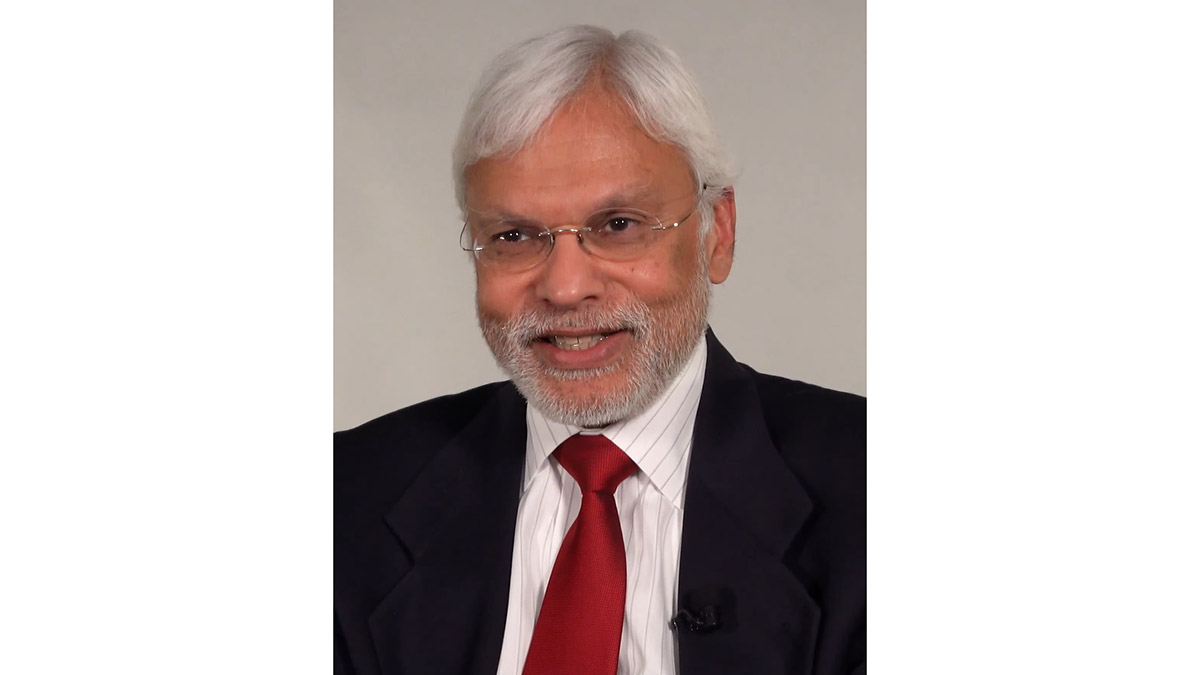Red spy bag, a Tellis-tale giveaway

The Ashley Tellis story reads a little like The Lady Vanishes, one of those Hitchcock mysteries set in the inter-war era. There’s this middle-aged English governess Miss Froy—amiable, curious and talkative as all middle-aged English governesses were in the books—travelling to London from an East European land. Strange things happen on the way—an avalanche stalls the train, a stranger is strangled to death, a maiden who had befriended Miss Froy gets knocked out, and Miss Froy vanishes. When the maiden comes to and asks about her, everyone on the train asks—Froy who?
The Tellis tale is eerily similar. An India-born American, Tellis was the toast of the diplomatic circuits in Delhi and DC during the 2000s. He was there to advise ambassadors, lobby for the nuke deal, speak at seminars, strengthen India-US ties, brainstorm in think tanks, transform Asia-Pacific into Indo-Pacific, lecture at universities, and socialise at cocktails. Delhi thought he was our man in DC; DC thought he was their man in Delhi—in the honourable sense of being a mutual friend.
Then one day in October 2025, Don Trump’s Feds knocked on his door and took him away, saying he was neither Delhi’s man in DC nor DC’s man in Delhi, but Beijing’s man in the Beltway. Suddenly, things turned around as in the case of Froy. Old pals pretended not to have known him, diplomats disowned him, universities disaffiliated him, think tanks distanced themselves, websites erased his name, corporates cut his contract, and asked—Tellis who?
Everyone in DC and Delhi was in the know. Tellis had been a critic of China, and a friend of all the president’s men under George Bush, Barack Obama, Joe Biden and even Donald Trump-I, and of all the PM’s men under Manmohan Singh and Narendra Modi. Things changed under Trump-II. As Trump found many in the world and in US politics weren’t playing the game by his rules, he unleashed a tariff war on the world, and a McCarthyist-style witch-hunt at home. There’s a heightened scrutiny of foreigners, stalking of political rivals, deep probes into China links of enterprises and academics, and fund cuts on institutions that harbour dissenting intellectuals.
What made Tellis the fall guy in Indian eyes was that he had been getting miffed with India of late. Friends say, he had meant India well, but found India wasn’t rising to his expectations. The man who had argued that a nuclear-energised India would balance China in the Asia-Pacific wrote in 2023 that India, lacking the guts to stand up to big bully Beijing, had been a bad bet for the US. The Indian intelligentsia, who wants to hear only good things said about them, just couldn’t take it.
Now, for the charges against Tellis—(a) he printed out classified papers and kept them home, (b) he had four dinners in four years with Chinese officials, (c) at dinners they chatted over Iran-China ties, US-Pak ties, emerging tech and AI, and (d) to one dinner he carried a manila envelope, and returned with a “red gift bag”.
Poor Feds! They missed the fact that all the printing jobs were done last month, whereas the dinners had taken place years and months earlier.
Now, two million-dollar questions. One, do the Feds think spies still pass on secrets in envelopes, and that spymasters give cash and rubies in red gift bags? Then they would look for genies in brass bottles and aliens landing in the Bermuda Triangle. Two, did they check whether he dined on Chinese noodles or American chop suey? The choice of the cuisine should reveal where his loyalties lay.
prasannan@theweek.in
Columns